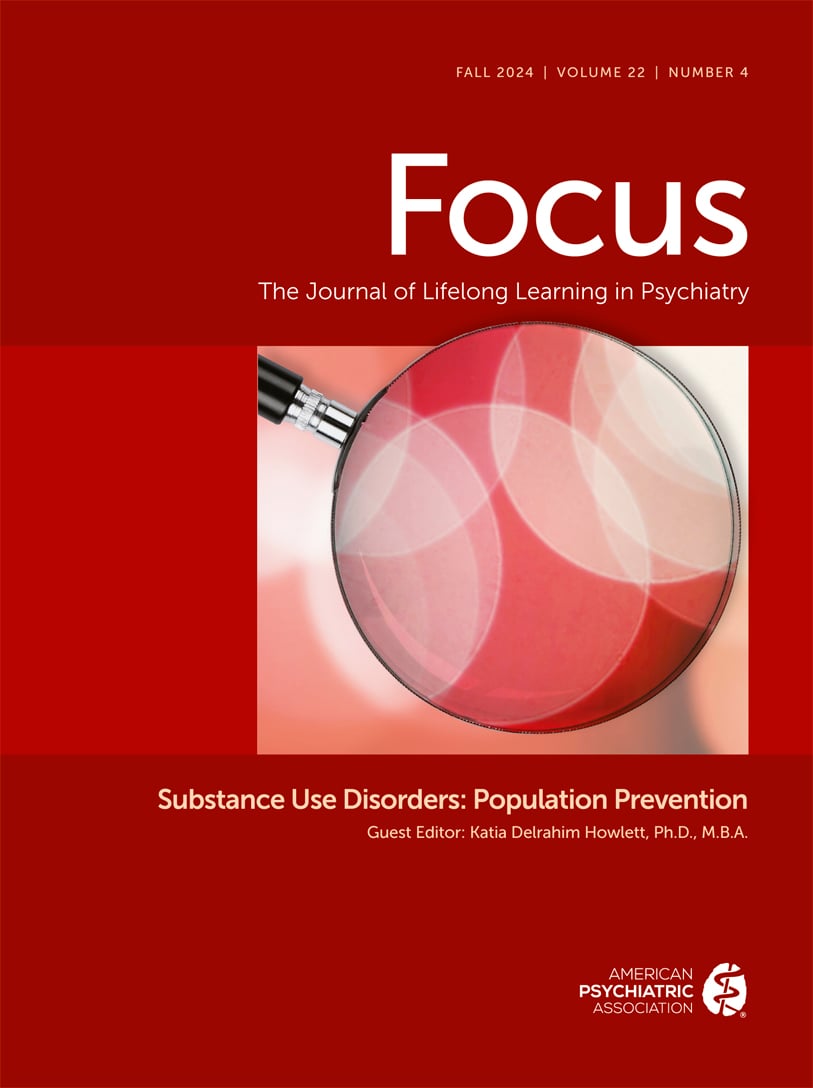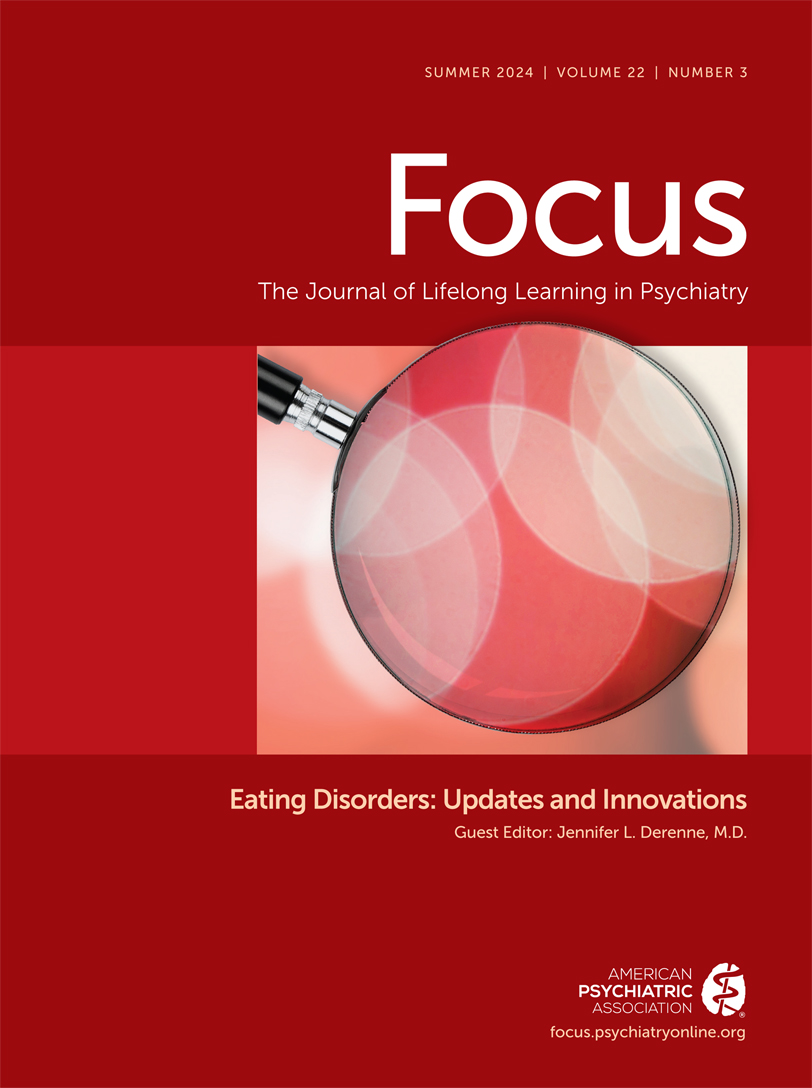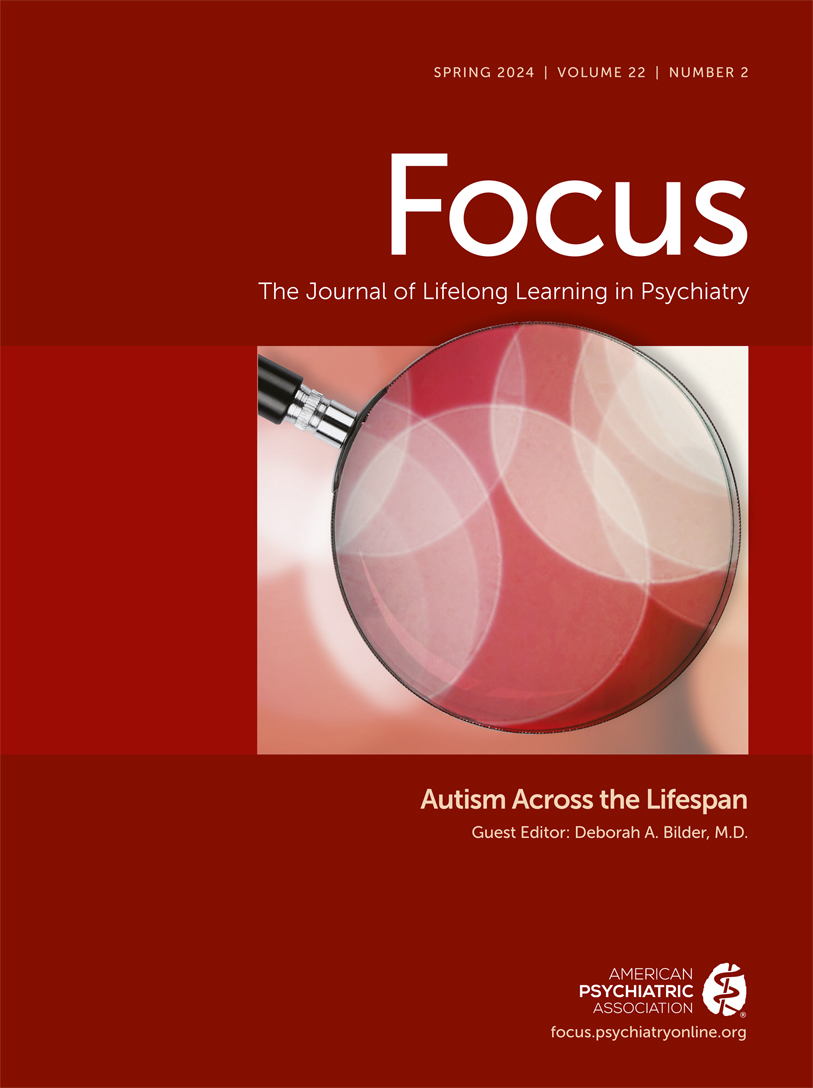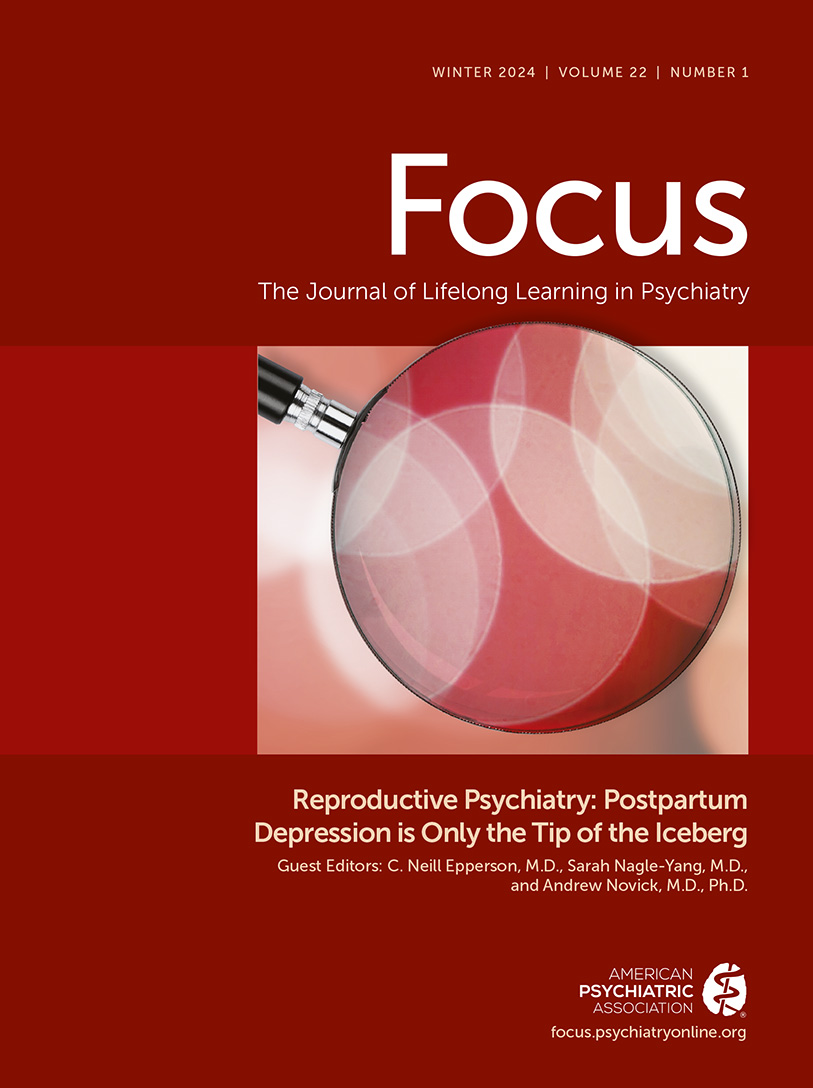Focus
- Volume 16
- Number 1
- January 2018
From the Guest Editor
Complementary and Integrative Medicine
Publication date: 01 January 2018
Pages2–11Natural and herbal remedies, also known as “alternative” or “complementary” medicines, have grown tremendously in popularity over the past two decades, becoming a major component of health care and general wellness in the United States and worldwide. The ...
https://doi.org/10.1176/appi.focus.20170041Publication date: 01 January 2018
Pages12–18Yoga has been in use for thousands of years in the East as a healing modality. Western practitioners are now starting to recognize the potential of yoga-based treatments. The purpose of this article is to explore the evidence-base of yoga-based treatments ...
https://doi.org/10.1176/appi.focus.20170055Publication date: 01 January 2018
Pages19–23Sexual dysfunction, which may affect any part of the sexual response cycle (e.g., libido, arousal, and orgasm), is a highly prevalent condition among women and is associated with significant negative consequences for quality of life. Unfortunately, few ...
https://doi.org/10.1176/appi.focus.20170049Publication date: 01 January 2018
Pages24–31This article reviews the role of massage therapy in the treatment of common psychiatric disorders and briefly discusses the prevalence and popularity of complementary and integrative treatments in the general population and touches on the literature on ...
https://doi.org/10.1176/appi.focus.20170043Publication date: 01 January 2018
Pages32–39The authors discuss mindfulness and describe its implementation in treating psychiatric disorders. They further identify for whom mindfulness-based interventions have been efficacious, and they provide a summary of how these interventions work, including ...
https://doi.org/10.1176/appi.focus.20170039Publication date: 01 January 2018
Pages40–47Qigong and Tai-Chi have been shown to improve psychological well-being and reduce symptoms of anxiety and depression by altering the autonomic system and restoring homeostasis. These effects could occur through changes in multiple prefrontal regions, the ...
https://doi.org/10.1176/appi.focus.20170042Other Areas of Interest
Publication date: 01 January 2018
Pages48–53The relationship between type 2 diabetes mellitus and antipsychotic use by schizophrenia patients is recognized but not well understood. This article reviews the literature regarding metabolic interactions, pathological pathways, and protocols for ...
https://doi.org/10.1176/appi.focus.20160048Ask the Expert
Patient Management Exercise
Communication Commentary
Ethics Commentary
Applied Armamentarium
Publication date: 01 January 2018
Pages67–73The authors present findings from an eight-week, open-label study of doxazosin extended-release for nightmares, sleep disturbance, and overall clinical symptoms in posttraumatic stress disorder (PTSD). Eight participants completed eight weeks of study ...
https://doi.org/10.1176/appi.focus.2017003121st-Century Psychiatrist
Publication date: 01 January 2018
Pages74–79Not only must the 21st-century psychiatrist adapt to a rapidly advancing science and changing health care climate, he or she must also consider how to most effectively educate the psychiatrists of tomorrow. Psychiatric education is changing and is ...
https://doi.org/10.1176/appi.focus.20170004Bibliography
Abstracts
Influential Publications
Publication date: 01 January 2018
Pages85–94Background: The Canadian Network for Mood and Anxiety Treatments (CANMAT) conducted a revision of the 2009 guidelines by updating the evidence and recommendations. The scope of the 2016 guidelines remains the management of major depressive disorder (MDD) ...
https://doi.org/10.1176/appi.focus.16106Publication date: 01 January 2018
Pages95–97There is increasing interest in the use of yoga as way to manage or treat depression and anxiety. Yoga is affordable, appealing, and accessible for many people, and there are plausible cognitive/affective and biologic mechanisms by which yoga could have a ...
https://doi.org/10.1176/appi.focus.16104Publication date: 01 January 2018
Pages98–112Objectives: To (1) characterize complementary and alternative medicine studies for posttraumatic stress disorder symptoms, (2) evaluate the quality of these studies, and (3) systematically grade the scientific evidence for individual CAM modalities for ...
https://doi.org/10.1176/appi.focus.16102Publication date: 01 January 2018
Pages113–118Study Objectives: To investigate the efficacy of melatonin compared to placebo in improving sleep parameters in patients with primary sleep disorders. Design: PubMed was searched for randomized, placebo-controlled trials examining the effects of melatonin ...
https://doi.org/10.1176/appi.focus.16101Past Issues
View Issues Archive
Vol. 22 | No. 4

Vol. 22 | No. 3

Vol. 22 | No. 2
